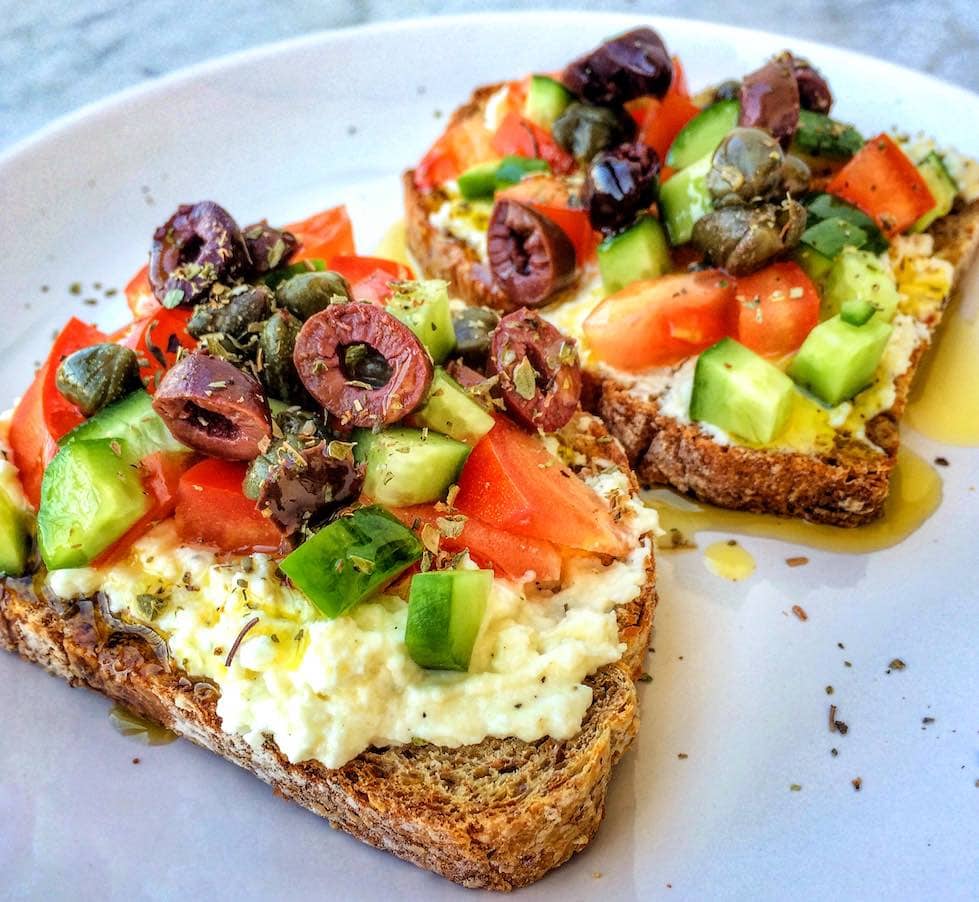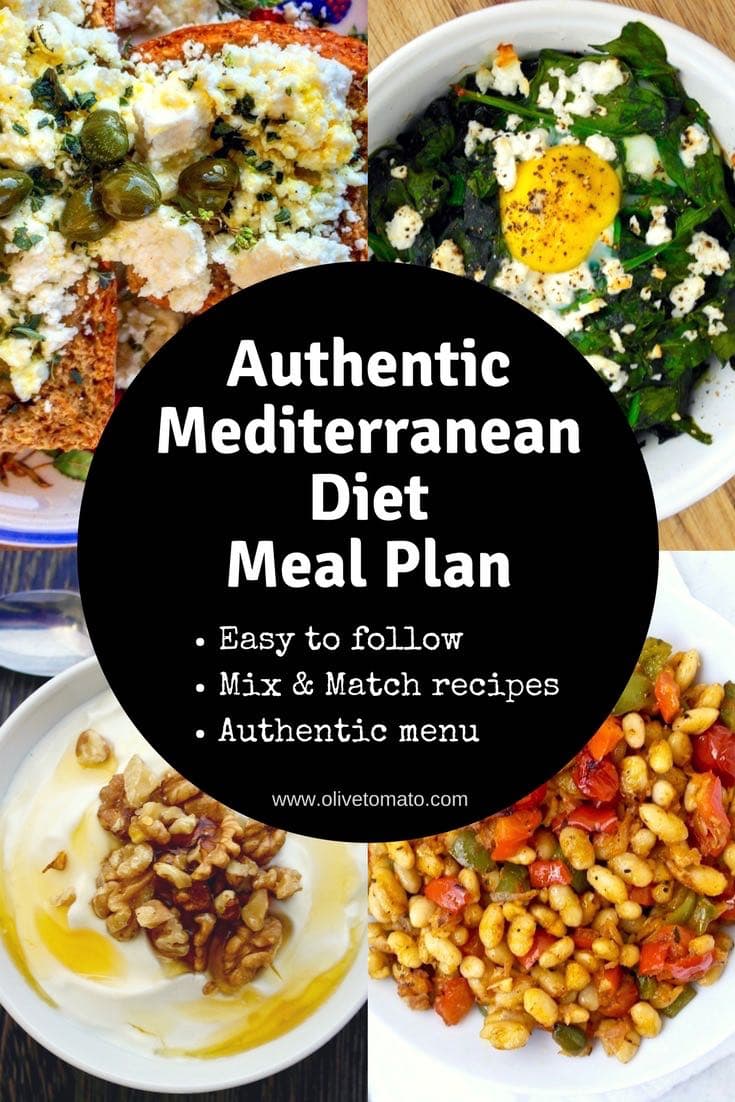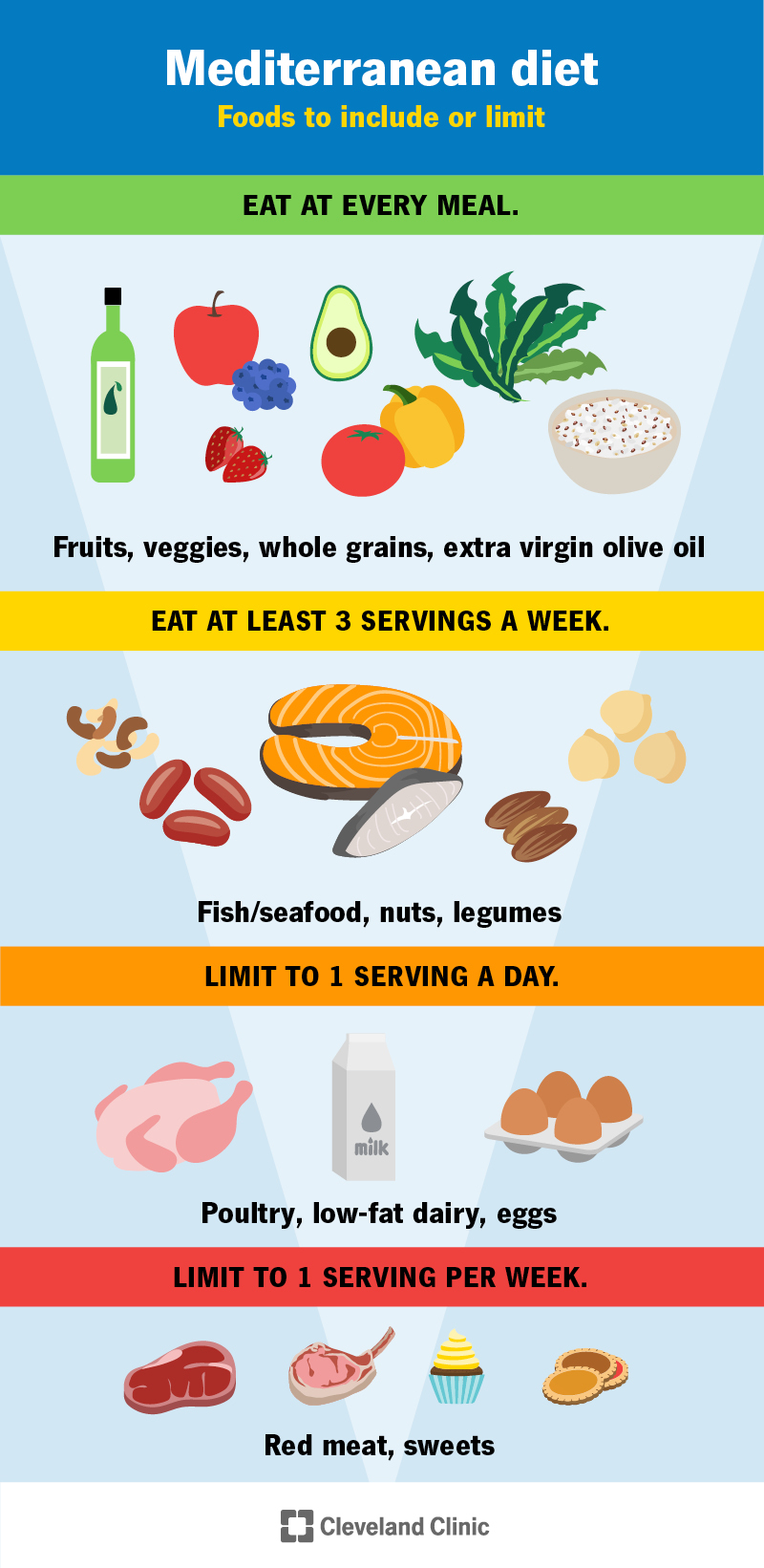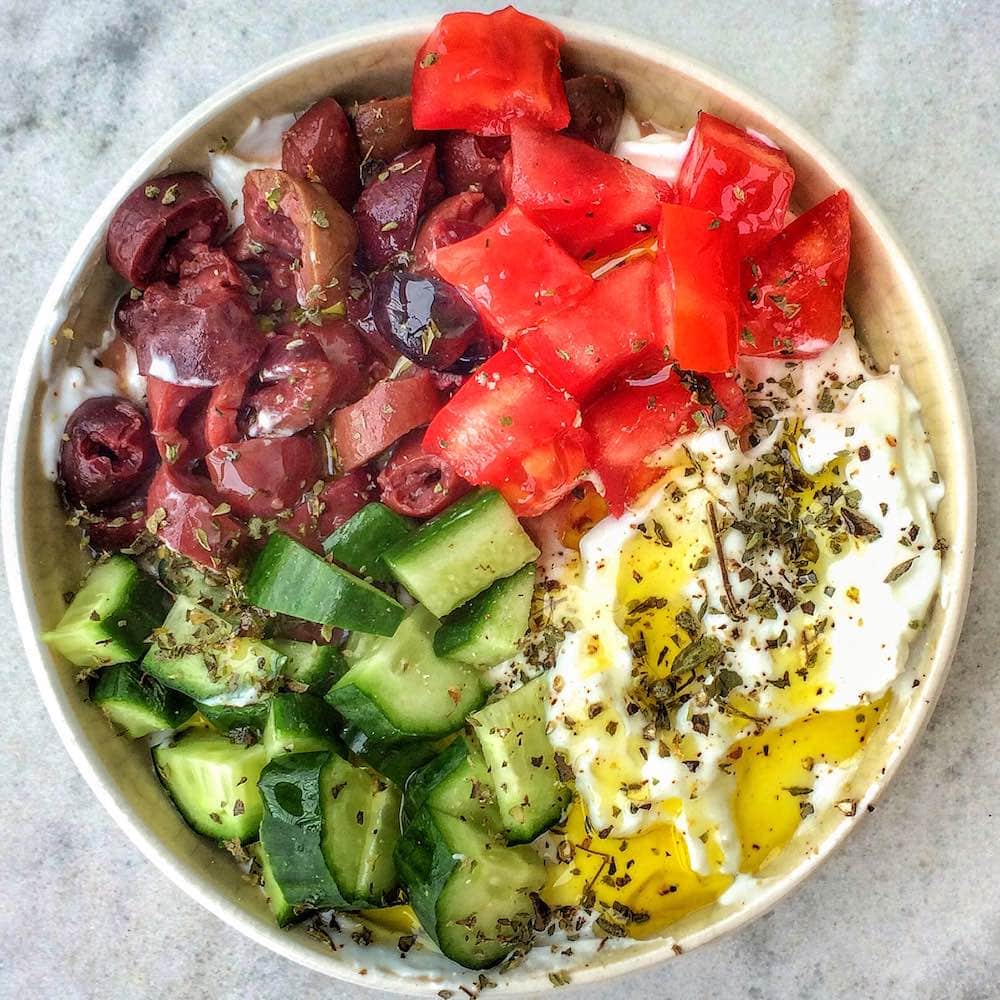What Do Mediterraneans Really Eat? A Guide to the Mediterranean Diet

The Mediterranean diet is a heart-healthy eating pattern that has been shown to have many health benefits, including reducing the risk of heart disease, stroke, and cancer. But what do mediterraneans really eat?
In this article, we will take a closer look at the Mediterranean diet and explore what foods Mediterraneans really eat. We will also provide tips on how you can incorporate these healthy eating habits into your own life.

What Do Mediterraneans Really Eat?
Fruits, Vegetables, and Legumes
Mediterraneans eat a lot of fruits, vegetables, and legumes. These foods are packed with vitamins, minerals, and fiber, which are all essential for good health. Fruits and vegetables are also low in calories, so they can help you maintain a healthy weight. Some of the most popular fruits and vegetables in the Mediterranean diet include tomatoes, cucumbers, onions, peppers, eggplant, zucchini, and olives. Legumes, such as beans, lentils, and chickpeas, are also a good source of protein and fiber.
Whole Grains
Whole grains are another important part of the Mediterranean diet. Whole grains are a good source of fiber, which can help you feel full and satisfied after eating. They are also a good source of vitamins, minerals, and antioxidants. Some of the most popular whole grains in the Mediterranean diet include brown rice, quinoa, barley, and oats.
| Type of Grain | Fiber Content (g) | Protein Content (g) |
|---|---|---|
| Brown Rice | 3.5 | 4.5 |
| Quinoa | 2.6 | 8.1 |
| Barley | 3.8 | 3.5 |
| Oats | 4.0 | 6.9 |

Fruits
A Mediterranean Diet Staple
Fruits are a staple of the Mediterranean diet, and for good reason. They are packed with vitamins, minerals, and fiber, all of which are essential for good health. Fruits are also low in calories, so they can help you maintain a healthy weight.
Some of the most popular fruits in the Mediterranean diet include:
These fruits are often used in salads, main dishes, and desserts. They can also be eaten fresh as a snack.
Health Benefits of Fruits
Eating fruits has been linked with a number of health benefits, including:
- Reduced risk of heart disease
- Reduced risk of stroke
- Reduced risk of cancer
- Improved blood sugar control
- Reduced inflammation
- Boosted immunity
If you are looking for a healthy and delicious way to improve your diet, adding more fruits to your meals is a great place to start.
| Fruit | Vitamin C Content (mg) | Potassium Content (mg) |
|---|---|---|
| Orange | 70 | 181 |
| Banana | 10.3 | 422 |
| Apple | 14.3 | 107 |
| Grapefruit | 64 | 134 |
:max_bytes(150000):strip_icc()/Mediterranean-Diet-Flatlay-04-1x1-1-85f522bcda2c4e0cb2eb269ad2356aff.jpg)
Vegetables
Vegetables are another important part of the Mediterranean diet. They are packed with vitamins, minerals, and fiber, which are all essential for good health. Vegetables are also low in calories, so they can help you maintain a healthy weight. Some of the most popular vegetables in the Mediterranean diet include tomatoes, cucumbers, onions, peppers, eggplant, zucchini, and olives.
| Vegetable | Vitamin C Content (mg) | Potassium Content (mg) |
|---|---|---|
| Tomato | 12.7 | 290 |
| Cucumber | 2.8 | 147 |
| Onion | 7.6 | 181 |
| Pepper | 95.7 | 396 |
Vegetables can be eaten fresh, cooked, or canned. They can be used in salads, main dishes, and side dishes. Vegetables are also a good source of antioxidants, which can help protect your cells from damage.

and Legumes
Legumes are another important part of the Mediterranean diet. Legumes are a good source of protein, fiber, and iron. They are also a good source of vitamins and minerals, including folate, magnesium, and potassium. Some of the most popular legumes in the Mediterranean diet include beans, lentils, and chickpeas.
| Legume | Protein Content (g) | Fiber Content (g) |
|---|---|---|
| Beans | 15.2 | 12.5 |
| Lentils | 17.9 | 11.8 |
| Chickpeas | 14.5 | 12.5 |

Whole Grains
Whole grains are an important part of the Mediterranean diet. They are a good source of fiber, which can help you feel full and satisfied after eating. They are also a good source of vitamins, minerals, and antioxidants. Some of the most popular whole grains in the Mediterranean diet include brown rice, quinoa, barley, and oats.
Here is a table showing the nutritional content of some popular whole grains:
| Type of Grain | Fiber Content (g) | Protein Content (g) |
|---|---|---|
| Brown Rice | 3.5 | 4.5 |
| Quinoa | 2.6 | 8.1 |
| Barley | 3.8 | 3.5 |
| Oats | 4.0 | 6.9 |
Whole grains can be eaten in a variety of ways. They can be cooked into pilafs, salads, and soups. They can also be added to baked goods, such as bread and muffins.

Healthy Fats
Healthy fats are an important part of the Mediterranean diet. They can help to lower cholesterol, reduce inflammation, and protect against heart disease. Some of the best sources of healthy fats include olive oil, avocados, nuts, and seeds.
Olive oil is a staple of the Mediterranean diet. It is a good source of monounsaturated fats, which can help to lower LDL (bad) cholesterol and raise HDL (good) cholesterol. Olive oil is also a good source of antioxidants, which can help to protect against cell damage.
Avocados are another good source of healthy fats. They are also a good source of fiber, potassium, and vitamins C and E. Avocados can be eaten fresh, added to salads, or used in guacamole.
Nuts and seeds are also good sources of healthy fats. They are also a good source of protein, fiber, and vitamins and minerals. Nuts and seeds can be eaten as a snack, added to salads, or used in baking.
| Type of Fat | Health Benefits |
|---|---|
| Monounsaturated Fats | Lower LDL cholesterol, raise HDL cholesterol |
| Polyunsaturated Fats | Reduce inflammation, protect against heart disease |
| Saturated Fats | Limit intake |

Fish and Seafood
Healthy Options for a Balanced Diet
Fish and seafood are important parts of the Mediterranean diet. They are a good source of protein, omega-3 fatty acids, and other nutrients. Omega-3 fatty acids are essential for good heart health and may also help to reduce the risk of cancer and other chronic diseases.
Some of the most popular fish and seafood in the Mediterranean diet include:
How to Cook Fish and Seafood
Fish and seafood can be cooked in a variety of ways, including grilling, baking, frying, and steaming. Grilling and baking are the healthiest cooking methods, as they do not add any additional fat or calories. Frying is a less healthy cooking method, as it adds fat and calories to the fish or seafood. Steaming is a healthy cooking method, but it can make the fish or seafood less flavorful.
| Cooking Method | Healthiest | Least Healthy |
|---|---|---|
| Grilling | Yes | No |
| Baking | Yes | No |
| Frying | No | Yes |
| Steaming | Yes | No |
Tips for Eating Fish and Seafood
Here are a few tips for eating fish and seafood:
- Choose fish and seafood that is low in mercury.
- Eat fish and seafood at least twice a week.
- Cook fish and seafood in a healthy way, such as grilling or baking.
- Add lemon juice or other healthy flavorings to fish and seafood.
Conclusion
Fish and seafood are important parts of the Mediterranean diet. They are a good source of protein, omega-3 fatty acids, and other nutrients. Eating fish and seafood at least twice a week can help to improve your heart health and reduce your risk of cancer and other chronic diseases.

Moderate Amounts of Meat and Poultry
Mediterraneans eat moderate amounts of meat and poultry. Meat and poultry are good sources of protein, iron, and other nutrients. However, eating too much meat and poultry can increase your risk of heart disease, stroke, and other chronic diseases.
When choosing meat and poultry, opt for lean cuts and remove the skin before cooking. This will help to reduce your intake of saturated fat and cholesterol. Also, try to limit your intake of processed meats, such as bacon, sausage, and hot dogs. These meats are high in saturated fat and sodium, which can be harmful to your health.
| Type of Meat | Protein Content (g) | Iron Content (mg) |
|---|---|---|
| Chicken | 26.7 | 1.5 |
| Beef | 26.1 | 2.7 |
| Pork | 25.5 | 1.8 |
Here are some tips for eating meat and poultry in moderation:
- Choose lean cuts of meat and poultry.
- Remove the skin from poultry before cooking.
- Limit your intake of processed meats.
- Eat meat and poultry as part of a balanced meal that includes fruits, vegetables, and whole grains.

Dairy Products
Dairy products are another important part of the Mediterranean diet. Dairy products are a good source of calcium, protein, and other nutrients. However, some dairy products can be high in saturated fat, so it is important to choose low-fat or fat-free options.
Some of the most popular dairy products in the Mediterranean diet include:
| Type of Dairy Product | Calcium Content (mg) | Protein Content (g) |
|---|---|---|
| Cheese | 200 | 7 |
| Yogurt | 180 | 8 |
| Milk | 300 | 8 |
Dairy products can be eaten in a variety of ways. They can be eaten on their own, added to salads, or used in cooking.
Herbs and Spices
Herbs and spices are an important part of the Mediterranean diet. They add flavor to food and can also have health benefits. Some of the most popular herbs and spices in the Mediterranean diet include:
| Herb or Spice | Health Benefits |
|---|---|
| Basil | Anti-inflammatory, antioxidant |
| Oregano | Antibacterial, antiviral |
| Thyme | Expectorant, antiseptic |
Herbs and spices can be used in a variety of ways. They can be added to soups, stews, salads, and other dishes. They can also be used to make marinades, rubs, and spice blends.
Wine
The Perfect Accompaniment to a Mediterranean Meal
Wine is an important part of the Mediterranean diet. It is a good source of antioxidants, which can help to protect against heart disease and other chronic diseases. Wine can also help to improve digestion and reduce stress.
The Mediterranean diet recommends drinking wine in moderation. Moderate drinking means having one to two glasses of wine per day for women and two to three glasses of wine per day for men.
| Type of Wine | Alcohol Content | Calories per Glass |
|---|---|---|
| Red Wine | 12-15% | 120-150 |
| White Wine | 10-13% | 100-130 |
| Rosé Wine | 11-14% | 110-140 |
When choosing a wine to drink with a Mediterranean meal, opt for a light-bodied wine with a fruity flavor. Some good choices include Pinot Noir, Sauvignon Blanc, and Chardonnay.
Mediterranean Diet Recipes for GERD
Health Benefits of Wine
Drinking wine in moderation has been linked with a number of health benefits, including:
- Reduced risk of heart disease
- Reduced risk of stroke
- Reduced risk of cancer
- Improved digestion
- Reduced stress
Water
Importance of Water in the Mediterranean Diet
Water is an essential part of the Mediterranean diet. It helps to keep you hydrated and can help to prevent dehydration, which can lead to fatigue, headaches, and other health problems. Water also helps to flush out toxins from your body and can help to improve your digestion.
The Mediterranean diet recommends drinking plenty of water throughout the day. Aim to drink eight glasses of water per day, or more if you are exercising or sweating heavily. You can also drink other fluids, such as tea or juice, but water is the best choice for hydration.
Benefits of Drinking Water
- Prevents dehydration
- Flushes out toxins
- Improves digestion
- Boosts energy levels
- Improves mood
Tips for Drinking More Water
- Carry a water bottle with you throughout the day.
- Add slices of fruit or vegetables to your water to make it more flavorful.
- Drink a glass of water before and after each meal.
- Drink a glass of water before bed.
| Symptom of Dehydration | Cause |
|---|---|
| Fatigue | Lack of fluids in the body |
| Headaches | Dehydration can cause the brain to shrink, which can lead to headaches |
| Muscle cramps | Dehydration can cause the muscles to cramp |
If you are struggling to drink enough water, try setting a goal for yourself and gradually increase the amount of water you drink each day. You can also try drinking water with meals or snacks, or adding flavor to your water with fruit or vegetables.
Drinking plenty of water is an important part of the Mediterranean diet. By following these tips, you can make sure that you are getting the hydration you need to stay healthy and energized.
Final Thought
The Mediterranean diet is a healthy and delicious way to eat. By following the tips in this article, you can incorporate the Mediterranean diet into your own life and enjoy the many health benefits it has to offer.



